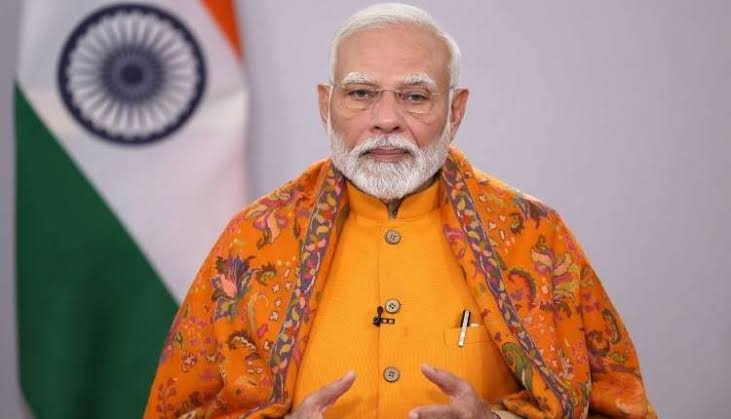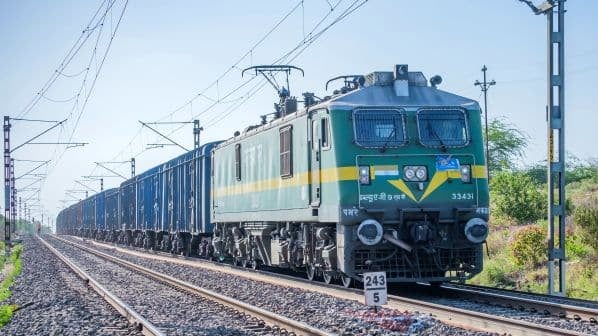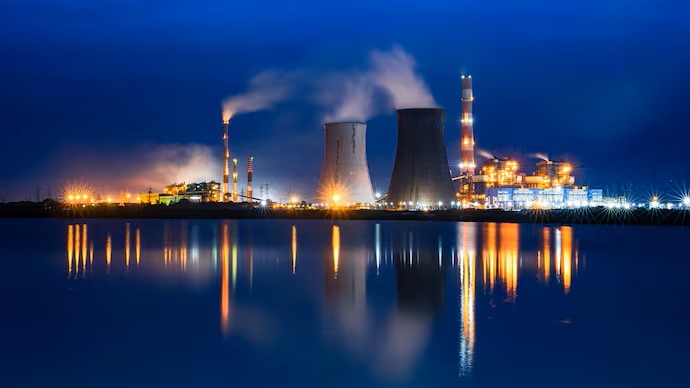Prime Minister Narendra Modi addressed the SAMVAD programme in Thailand through a video message, emphasizing the deep cultural and spiritual connections between India and Thailand. He began by recalling his late friend, former Japanese Prime Minister Shinzo Abe, who played a pivotal role in shaping the vision of SAMVAD back in 2015. Since then, the initiative has traveled across various countries, fostering meaningful discussions on philosophy, values, and global harmony.
 Prime Minister Modi spoke warmly about Thailand’s rich history and its deep-rooted ties with India. He highlighted how the Ramayana and Ramakien traditions, as well as the shared reverence for Bhagwan Buddha, bind the two nations together. He noted that when India sent holy relics of Bhagwan Buddha to Thailand last year, millions of devotees paid their respects, demonstrating the spiritual connection between the two nations. He also praised the strong bilateral partnership, noting that India’s ‘Act East’ policy and Thailand’s ‘Act West’ approach complement each other in fostering mutual progress.
Prime Minister Modi spoke warmly about Thailand’s rich history and its deep-rooted ties with India. He highlighted how the Ramayana and Ramakien traditions, as well as the shared reverence for Bhagwan Buddha, bind the two nations together. He noted that when India sent holy relics of Bhagwan Buddha to Thailand last year, millions of devotees paid their respects, demonstrating the spiritual connection between the two nations. He also praised the strong bilateral partnership, noting that India’s ‘Act East’ policy and Thailand’s ‘Act West’ approach complement each other in fostering mutual progress.
The Prime Minister underscored that SAMVAD is not just about economic discussions but about social values and ethical leadership. He highlighted that the teachings of Bhagwan Buddha remain deeply relevant in today’s world, offering solutions to conflict resolution and peaceful coexistence. He spoke about the dangers of extreme positions in social, political, and environmental spheres, warning that they lead to discord, crises, and even stress-related health issues. Instead, he urged people to adopt Bhagwan Buddha’s Middle Path, advocating for balance and moderation in all aspects of life.
Addressing the issue of conflicts, he pointed out that differences in perspectives should not lead to division. He cited the Rig Veda, emphasizing that truth can be seen from multiple viewpoints. He also referred to Buddhist teachings, which stress the importance of recognizing others as similar to ourselves, thereby preventing harm and violence. According to Modi, many global issues arise because people perceive others as fundamentally different, leading to fear and hostility.
The Prime Minister also stressed the urgent need to address the growing conflict between humanity and nature. He lamented the environmental crisis and pointed out that Asian traditions—including Hinduism, Buddhism, and Shintoism—teach people to live in harmony with nature rather than exploiting it. He invoked Mahatma Gandhi’s philosophy of trusteeship, urging the world to use natural resources responsibly for the benefit of future generations.
Reflecting on his personal journey, Modi shared that he comes from Vadnagar, an ancient seat of Buddhist learning, and now represents Varanasi, which includes Sarnath—where Bhagwan Buddha delivered his first sermon. He took pride in India’s efforts to preserve and promote Buddhist heritage, mentioning the development of the Buddhist Circuit, the launch of the Buddha Purnima Express, and the inauguration of the Kushinagar International Airport to facilitate Buddhist pilgrimage. He also announced new initiatives for Bodh Gaya, inviting scholars and devotees to explore India’s Buddhist legacy.
He spoke about India’s commitment to reviving Nalanda University, once a beacon of Buddhist learning, and recognized the importance of preserving Pali literature by declaring it a classical language. He highlighted India’s contributions to global Buddhist initiatives, including the construction of Buddhist cultural centers in Lumbini, Nepal, and the reprinting of Mongolian Buddhist scriptures.
The Prime Minister expressed optimism about the religious roundtable at SAMVAD, where leaders from diverse faiths would engage in discussions on peace and harmony. He concluded by extending his gratitude to the people and government of Thailand for hosting the event and hoped that the wisdom of Bhagwan Buddha would continue to guide the world toward peace, progress,and prosperity.



